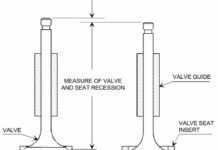
The Senate finance committee approved a plan to hike the taxes on general aviation jet fuel by 65 percent, from 21.8 cents per gallon to 35.9 cents, The Hill reported on Tuesday. The change would raise $400 million per year, which the committee says will help fund NextGen, the FAA’s plan to modernize the air traffic control system. The committee also approved a surcharge of 14.1 cents per gallon on jet fuel used by fractional aircraft. Fuel taxes have been supported as a better option than user fees by most aviation advocacy groups. “In the last two Congresses, AOPA and its members agreed to 25 percent and 65 percent increases on aviation gasoline and non-commercial jet fuel, respectively,” AOPA noted on Tuesday. “Our position really has not changed,” AOPA spokesman Chris Dancy told AVweb. “In 2007 and again in 2009, we and our members agreed to higher fuel excise taxes as a way to fund the FAA and NextGen in lieu of user fees.”
NBAA agreed that the committee’s plan is acceptable. “The business aviation community has long said that the best way for companies that rely on general aviation to help fund aviation system modernization is by building upon the proven and efficient general aviation fuel tax,” NBAA said in an e-mail to AVweb. “The bill approved by the Finance Committee today mirrors previous Congressional FAA reauthorization proposals supported by NBAA and the rest of the general aviation community, in that it makes adjustments to the fuel tax in lieu of new user fees for general aviation. The revenues raised through the fuel-tax increase will go to funding aviation system modernization; we welcome this legislation, and look forward to working with its supporters in Congress to ensure its final passage.” The full Senate is expected to continue its work on the FAA bill over the next week or so. The House Aviation Subcommittee also is holding hearings this week to hear from government officials and advocacy groups about FAA funding. After both the House and Senate have completed their bills, a final bill will be worked out. The current funding bill has been extended 17 times, and may have to be extended at least once more before a final bill is worked out, with a term of two to four years.


































